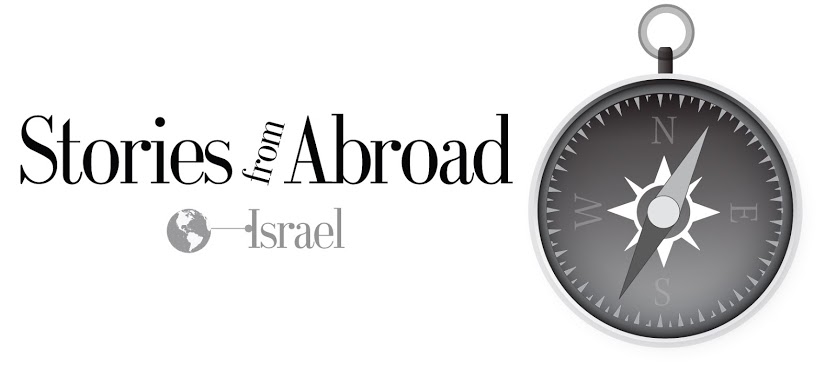Why here?
As horrible as it sounds, those were the first words that popped into my head as I stepped off the plane and looked around. The land was flat and arid, peppered with a few clusters of palm trees. The buildings were unornamented, all painted white or tan. And everything was written in Hebrew, sans English translations.
Uh oh.
When I first drafted my proposal to do a travel writing project, I thought I’d go to Budapest, Krakow, Prague and Vienna in an attempt to follow the path my grandfather took during his Holocaust experience. After talking to him, I switched my destination to Israel, but suddenly Plan A seemed far more interesting — and safe. I’ve traveled throughout continental Europe. I know what to expect, how to make do. But Israel? I can’t even read the bus schedule.
Then I realized — that’s the point.
For me, travel is about forcing myself out of my comfort zone. I want to feel at home, yes, but not right away. To get to that point, I need to explore, to try new things, to embarrass myself, to make mistakes and learn from them. So am I going to fail miserably when I try to speak Hebrew? Absolutely. I’m going to forget to wear sunscreen and wither beneath the desert sun. I’m going to wear the wrong shoes to hike up the Masada. I’m going to struggle to follow along with the brachot (blessings before eating). That’s all right. After all, my goal for this trip is to learn more about my family, and to do that, I need to completely immerse myself in Israeli culture, something my grandfather always wanted to do himself.
After Jakab Farkas was liberated from Gunzkirchen, he dreamt of going to Israel. His hometown of Slinskydory, in former Czechoslovakia, was very anti-Semitic. As a Jew, it wasn’t safe to walk alone and during bar mitzvahs, it was common for people to release pigs into the crowd, hoping to ruin the festivities. As he got older, the anti-Semitism got worse, until it culminated in the concentration camps. Naturally, a Jewish state, free of that hatred, sounded like paradise, especially when his only surviving family was there.
Prior to the Holocaust, his sister had been active in the Zionist movement, which allowed her and her husband entrance into the nation. His other sister smuggled herself in (though not without getting caught and being incarcerated on Cyprus for several months), but Jakab was trapped in Europe. In the meantime, he went to England, but his goal remained the same — to get to Israel.
Sixty-some years later, we’re here. It isn’t his first time on Israeli soil, but it’s mine, and I’m eager to see what this place means to my family, and to create my own meaning, as well. It’s the Promised Land, the dream, where the Farkases have built wonderful lives for themselves, despite facing tragedies in the past. That’s why I came here. Because my original destinations were places of sorrow, but Israel is a place of hope and of renewal, which is what I want to celebrate.

